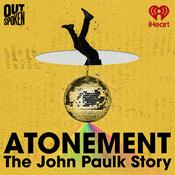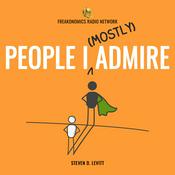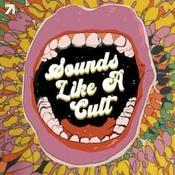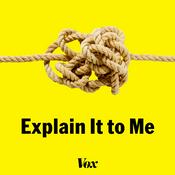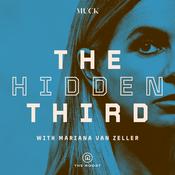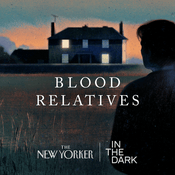118 episodes
- Toni Morrison was many things in her lifetime—Nobel laureate, renowned author, Princeton professor, and generous mentor to young writers. Her appeal translated seamlessly to the internet, where old interview clips still bubble up regularly on social media, reminding us of her sharp wit and commanding presence. But, as Namwali Serpell argues in a new book of essays, “On Morrison,” this undeniable star persona risks eclipsing the genius—and complexity—of the eleven novels she wrote. On this episode of Critics at Large, Vinson Cunningham, Naomi Fry, and Alexandra Schwartz dive back into these works to rediscover the writer as she was on the page. The hosts discuss Morrison’s début novel, “The Bluest Eye”; “Beloved,” which is widely regarded as her masterpiece; and “Jazz,” the experimental 1992 novel believed to be her personal favorite. Throughout her career, she insisted on writing flawed, dynamic characters rather than paragons of virtue. “The Morrison project is to put Black life, and particularly the lives of Black women, at the very center of literature—but to do it in a way that’s true to character and to human experience,” Schwartz says. “The people she’s writing about are damaged, are greedy, are jealous, are sad . . . and also are generous, and loving, and hurt and trying to heal.”
Read, watch, and listen with the critics:
“On Morrison,” by Namwali Serpell
“Toni Morrison, the Teacher,” by Vinson Cunningham (The New Yorker)
“The Bluest Eye,” by Toni Morrison
“Song of Solomon,” by Toni Morrison
“Toni Morrison and the Ghosts in the House,” by Hilton Als (The New Yorker)
“Jazz,” by Toni Morrison
“Beloved,” by Toni Morrison
“Sula,” by Toni Morrison
“Black Writers in Praise of Toni Morrison” (The New York Times)
“The Blue Period: Black Writing in the Early Cold War,” by Jesse McCarthy
Monuments at MOCA and the Brick
“Language as Liberation,” by Toni Morrison
New episodes drop every Thursday. Follow Critics at Large wherever you get your podcasts.
Critics at Large is a weekly discussion from The New Yorker which explores the latest trends in books, television, film, and more. Join us every Thursday as we make unexpected connections between classic texts and pop culture.
Learn about your ad choices: dovetail.prx.org/ad-choices - Once the fervor around Charli XCX’s 2024 album “brat” had cooled, the singer was approached to make a documentary about the tour—a practice that’s been embraced by the likes of Taylor Swift and Beyoncé. But Charli, who has built her brand in opposition to mainstream expectations, instead released “The Moment,” a tongue-in-cheek satire about the pressures stars face to milk career highs like “brat summer” for all they’re worth. On this episode of Critics at Large, Vinson Cunningham, Naomi Fry, and Alexandra Schwartz consider “The Moment” alongside both the sanitized documentaries it mocks and other artists’ attempts to subvert the form. Many of these projects promise genuine insight into their subjects, but what they actually show is the increasingly delicate balancing act of “authentic” celebrity. “It is really hard to both reveal and conceal at the same time,” Fry says. “To invite the fan in—but not in a way that feels unsafe, or that could get you cancelled, or could make you sell less, or could make you unloved.”
See Critics at Large live: the hosts will be discussing “Wuthering Heights” onstage at the 92nd Street Y on February 19th. Both in-person and streaming tickets are available. Buy now »
Read, watch, and listen with the critics:
Charli XCX’s “brat”
“The Moment” (2026)
“Homecoming: A Film by Beyoncé” (2019)
“Gaga: Five Foot Two” (2017)
“A Hard Day’s Night” (1964)
“Spice World” (1997)
“Taylor Swift: The End of an Era” (2025)
“Sean Combs: The Reckoning” (2025)
“Renaissance: A Film by Beyoncé” (2023)
“Gimme Shelter” (1970)
“Madonna: Truth or Dare” (1991)
“I’m Still Here” (2010)
New episodes drop every Thursday. Follow Critics at Large wherever you get your podcasts.
Critics at Large is a weekly discussion from The New Yorker which explores the latest trends in books, television, film, and more. Join us every Thursday as we make unexpected connections between classic texts and pop culture.
Learn about your ad choices: dovetail.prx.org/ad-choices - “Heated Rivalry,” a low-budget Canadian series that began streaming on HBO Max late last year, quickly made the leap from unexpected word-of-mouth success to full-blown cultural phenomenon. The show, which follows a pair of professional hockey players who fall for each other, has been name-checked by everyone from the N.H.L. commissioner to Zohran Mamdani; its two young leads, Hudson Williams and Connor Storrie, just served as Olympic torch-bearers. On this episode of Critics at Large, Vinson Cunningham, Naomi Fry, and Alexandra Schwartz unpack “Heated Rivalry” ’s appeal, considering its embrace of earnestness and its place in a broader lineage of stories about gay love. The way the protagonists are forced to hide their relationship recalls dramas set in earlier eras, from E. M. Forster’s “Maurice” to Annie Proulx’s “Brokeback Mountain”—but the function of the closet in art is ever-evolving. The hosts also discuss “Pillion,” a new film starring Alexander Skarsgård and Harry Melling, which features parents who are supportive of their son’s gayness but in the dark about his life as a sub. “It’s interesting, these contemporary stories where gay relationships are, in the larger culture, totally accepted—and that there are sort of closets within closets,” Cunningham says. “There’s a deeper place that others cannot go.”
See Critics at Large live: the hosts will be discussing “Wuthering Heights” onstage at the 92nd Street Y on February 19th. Both in-person and streaming tickets are available. Buy now »
Read, watch, and listen with the critics:
“Heated Rivalry” (2025–)
“Pillion” (2026)
Elena Ferrante’s Neapolitan Novels
Esther Perel’s response to “Heated Rivalry”
The novels of Sally Rooney
“The Delicious Anticipation–and, Yes, Release—of ‘Heated Rivalry,’ ” by Naomi Fry (The New Yorker)
“Maurice,” by E. M. Forster
“Brokeback Mountain” (2005)
“The Price of Salt,” by Patricia Highsmith
“Carol” (2015)
“My Own Private Idaho” (1991)
“The Swimming-Pool Library,” by Alan Hollinghurst
“The Loves of My Life,” by Edmund White
“I Love L.A.” (2025–)
New episodes drop every Thursday. Follow Critics at Large wherever you get your podcasts.
Critics at Large is a weekly discussion from The New Yorker which explores the latest trends in books, television, film, and more. Join us every Thursday as we make unexpected connections between classic texts and pop culture.
Learn about your ad choices: dovetail.prx.org/ad-choices - Vinson Cunningham, Naomi Fry, and Alexandra Schwartz celebrate the one-hundredth episode of Critics at Large with a special installment of the podcast’s advice series. Together, they counsel callers on everything from turning non-readers into bibliophiles to the art of curating the ideal road-trip playlist. They’re joined by David Remnick, the editor of The New Yorker, who shares some cultural dilemmas of his own. Finally, the hosts turn the tables and ask for guidance from their listeners.
Read, watch, and listen with the critics:
Billie Holiday’s “Body and Soul”
Bob Dylan’s “Blonde on Blonde”
Joni Mitchell’s “Blue”
The music of Laufey
“I Regret Almost Everything,” by Keith McNally
“The Palm House,” by Gwendoline Riley
“Task” (2025—)
“Die, My Love” (2025)
“Carol” (2015)
“The Price of Salt,” by Patricia Highsmith
“Surface Matters,” by Naomi Fry (The New Republic)
Geese’s “Getting Killed”
“What Went Wrong”
Richard Linklater’s “Before” trilogy
“The Ambassadors,” by Henry James
“Marty Supreme” (2025)
“Why Football Matters” (The New Yorker)
See Critics at Large live at 92NY on February 19: https://www.92ny.org/event/vinson-cunningham-naomi-fry-and-alexandra-schwartz
New episodes drop every Thursday. Follow Critics at Large wherever you get your podcasts.
Critics at Large is a weekly discussion from The New Yorker which explores the latest trends in books, television, film, and more. Join us every Thursday as we make unexpected connections between classic texts and pop culture.
Learn about your ad choices: dovetail.prx.org/ad-choices - Someone looking to understand America might do well to study the nation’s embrace of football. N.F.L. games regularly outperform anything else on television, and, in 2025, some hundred and twenty-seven million viewers tuned into the Super Bowl—more than ever before. As this year’s championship approaches, Vinson Cunningham, Naomi Fry, and Alexandra Schwartz are joined by their fellow New Yorker writer Louisa Thomas to unpack the sport’s allure, which has persisted despite increasingly dire evidence of the danger it poses to players’ health. Together, they discuss football’s origins as a “war game,” how fictional depictions have contributed to its mythos, and the state of play today. “A very compelling reason for football’s popularity is that it's not only a simulation of war,” Thomas says. “It’s a simulation of community.”
Read, watch, and listen with the critics:
“Friday Night Lights” (2006–11)
“The West Wing” (1999–2006)
“Football,” by Chuck Klosterman
“The End of the NFL’s Concussion Crisis,” by Reeves Wiedeman (New York magazine)
See Critics at Large live at 92NY on February 19: https://www.92ny.org/event/vinson-cunningham-naomi-fry-and-alexandra-schwartz
New episodes drop every Thursday. Follow Critics at Large wherever you get your podcasts.
Critics at Large is a weekly discussion from The New Yorker which explores the latest trends in books, television, film, and more. Join us every Thursday as we make unexpected connections between classic texts and pop culture.
Learn about your ad choices: dovetail.prx.org/ad-choices
More Society & Culture podcasts
Trending Society & Culture podcasts
About Critics at Large | The New Yorker
Critics at Large is a weekly culture podcast from The New Yorker. Every Thursday, the staff writers Vinson Cunningham, Naomi Fry, and Alexandra Schwartz discuss current obsessions, classic texts they’re revisiting with fresh eyes, and trends that are emerging across books, television, film, and more. The show runs the gamut of the arts and pop culture, with lively, surprising conversations about everything from Salman Rushdie to “The Real Housewives.” Through rigorous analysis and behind-the-scenes insights into The New Yorker’s reporting, the magazine’s critics help listeners make sense of our moment—and how we got here.See Critics at Large live at 92NY on February 19: https://www.92ny.org/event/vinson-cunningham-naomi-fry-and-alexandra-schwartz
Podcast websiteListen to Critics at Large | The New Yorker, Modern Wisdom and many other podcasts from around the world with the radio.net app

Get the free radio.net app
- Stations and podcasts to bookmark
- Stream via Wi-Fi or Bluetooth
- Supports Carplay & Android Auto
- Many other app features
Get the free radio.net app
- Stations and podcasts to bookmark
- Stream via Wi-Fi or Bluetooth
- Supports Carplay & Android Auto
- Many other app features


Critics at Large | The New Yorker
Scan code,
download the app,
start listening.
download the app,
start listening.












